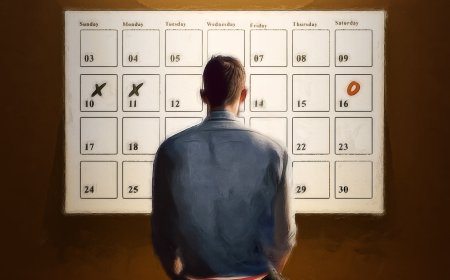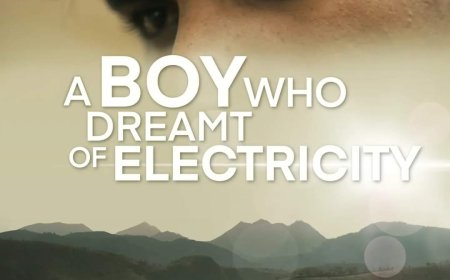CHAAD –THE TERRACE WOMEN AND SPACE A BEAUTIFUL BENGALI FILM
Shoma A. Chatterji provides a comprehensive review of Indrani Chakraborti’s debut feature film "Chaad".

A Room of One's Own is an extended essay, divided into six chapters, by , first published in 1929. In her essay, Woolf uses metaphors to explore social injustices and comments on women's lack of free expression. Her metaphor of a fish explains her most essential point, "A woman must have money and a room of her own if she is to write fiction". She writes of a woman whose thought had "let its line down into the stream". As the woman starts to think of an idea, a guard enforces a rule whereby women are not allowed to walk on the grass. Abiding by the rule, the woman loses her idea.
Indrani Chakraborti’s debut feature film Chaad, seems to have been inspired by Virginia Woolf’s theory placed within a middle-class Bengali family in the northern parts of Kolkata. The story revolves around Mitra Roy (Paoli Dam), married into a partly conservative, Bengali middle-class family whose husband (Rahul Arunodoy Banerjee) works in a magazine office and his uncle lives downstairs with his wife and daughter Mukul. Her in-laws are okay on the surface but her mother-in-law (Anuradha Roy) rules the family with an iron hand and does not quite like the daughter-in-law. Her husband (Basudev Mukherjee) is completely under the thumb of his dominating wife.
Mitra teaches in the primary classes of a neighbourhood school and writes short stories in her spare time. Her husband remains quite indifferent to his wife’s activities and seems to be totally dominated by his mother’s rule of law. Mitra’s sole place of ‘escape’ to write, to sketch and paint, or to watch the flight of birds in the sky, neighbourhood boys enjoying the kite-fights and so on is the terrace of the old building the family owns.
The terrace is also the place where she has created a small garden of her own and she finds peace, creative satisfaction and freedom to do as she wishes to on this terrace. In this sense, this terrace is her route to some freedom as all she wants is a bit of space for herself to think, to read, to draw and simply, to watch Nature in all its splendor. Contrary to what Virginia Woolf wrote, Mitra is an earning woman and yet, she is tied to the invisible changes of a Bengali marriage which, however, she has no intention of walking out from. She is at peace with her world so long as she can taste some freedom on the terrace. So, never mind even if a woman has some money and is an earning woman, she really has no space to experience the freedom she wants to feel. Even when she chooses to go for a morning walk along the river banks one morning, her husband asks her why, when she never goes on morning walks. Why should a woman be questioned for every single step she takes on her own?
One fine day, the terrace is taken away from her when her husband’s uncle is transferred and shifts away from Kolkata. Though they hand over the keys to her mother-in-law, the terrace is locked because the uncle’s family owns “the stairs” to the terrace though the terrace is joint property. Mitra asks for the keys to the terrace but her domineering mother-in-law puts her foot down. She finally finds her own way of reoccupying the terrace and life comes full circle. Her first novel also gets published in a reputed Bengali magazine in its Festival issue.
Towards the end, we find the husband reading her novel in the magazine and then, slowly stepping out of their room to stand on the large balcony that surrounds the rooms. Did he like it or didn’t he? We do not know and maybe, he too is not sure. Because men find it more difficult to take decisions than women do.
The largeness of the ancestral home is a pointer to Mitra’s lack of access to even one small part of this house – the terrace. Why? The film has no answers, it just shows and points out, firstly, at Mitra and her static life and secondly, at the audience asking them why should a modern, qualified and beautiful young woman be denied even a little space in that spacious, ancestral home?
Indrani, in her directorial debut, throws up an extremely subtle and controlled treatment of a significant question on the restriction of freedom of a young, educated and modern woman from using the space she wishes to. The restraint by the actors, the husband, the wife, the in-laws, the editor who commissions Mitra to write the novel and they become friends, are obvious in every frame of the film.
There is one scene which is a telling comment on married women losing every right to express themselves in their parental home once they are married. Mitra’s younger sister angrily retorts that if they have covered their own terrace, it is no business of hers. The only friend she has is the uncle’s grown daughter Mukul (Rajnandini Dutta) but she also loses touch when the uncle is transferred to a different town. The music is low-key and imaginative, impacting on the subtle drama in the foreground. The pace is a bit on the slower side but that is what the film demands. No shouting, no quarreling, no threats of walking out of this ‘caged’ marriage but just Mitra trying to find her little space to be able to enjoy the full moon on a full moon night.
Paoli Dam is very restrained in her portrayal of Mitra dotted with a few arguments and questioning of her husband a few times about why should she always ask her in-laws for permission for anything. She holds herself with dignity and the way she keeps waiting in the staff room even after the last bell has rung is a sign of her not really being in a great hurry to go home. Rahul as the husband complements Paoli in every way showing clearly that the marriage is in a statis, what with he being on his computer the whole time and Mitra wearying of trying to sustain communication lines with him.
The ancestral home where the family stays functions as a character in the film including of course, the terrace. We find a lot of research studies on gender discrimination of women in public spaces but none at all about women’s occupation, use and ownership of private spaces. Thank you Indrani Chakraborti and team for shedding some light on this rarely explored issue.
*****
What's Your Reaction?

































































